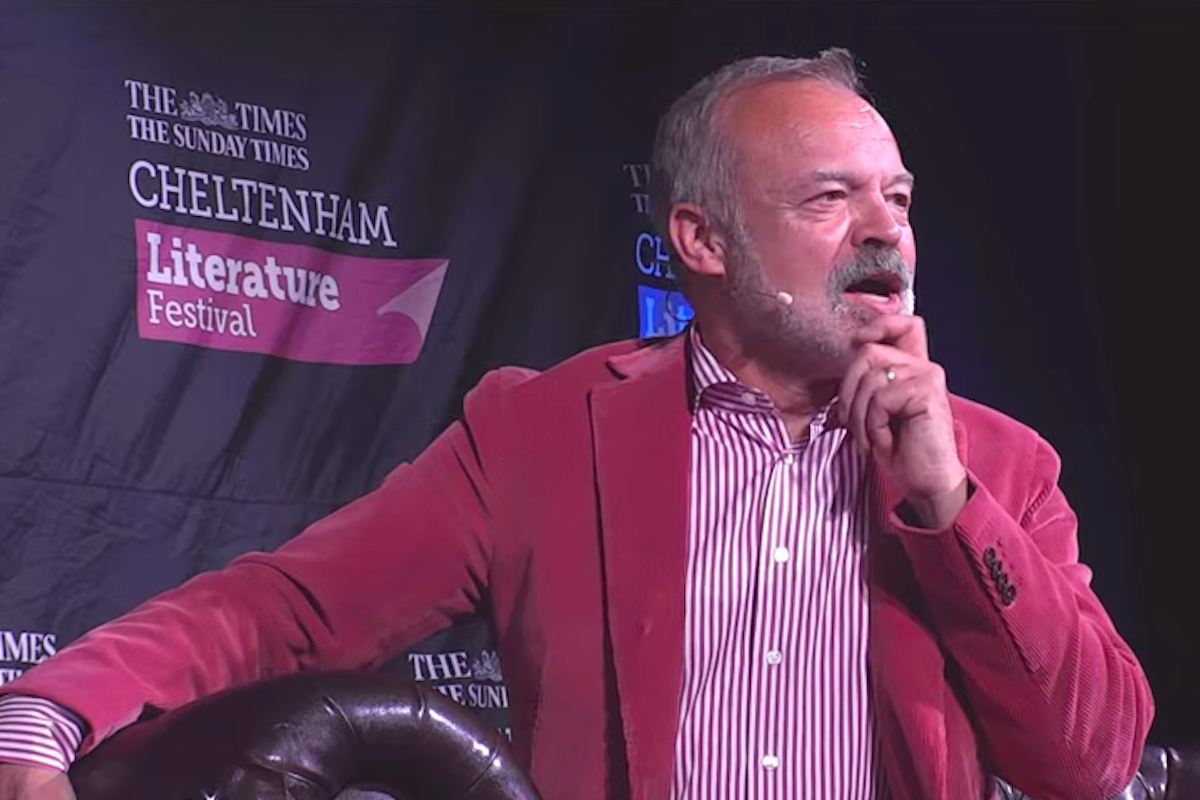I Know He Doesn’t Want His Name in This Headline but Graham Norton’s ‘Cancel Culture’ Criticisms Are Spot-on

During an appearance this week at the Cheltenham Literature Festival, comedian and talk show host Graham Norton was asked his thoughts on the idea of “cancel culture.” In the span of a three-minute clip that’s since racked up a few million views and gotten heaps of rightfully deserved praise, Norton deftly breaks down the fallacy and the problems with the narratives around it.
First, Norton points out the ridiculousness of someone using the platform of a newspaper op-ed or high-profile interview to claim they’ve been “cancelled.”
“I think the word is the wrong word. I think the word should be accountability,” he said. Norton brought up Monty Python comedian John Cleese, who recently took a gig hosting a new show on the right-wing GB News, which is essentially the British Fox News. Cleese has drifted further and further into the “WTF” side of the culture war in recent years, making inane pronoun jokes and dismissive anti-trans comments on Twitter and declaring during a SXSW panel earlier this year that he, as a white British man, wants and deserves reparations over ancient Roman colonization. (I’m sure Cleese would say he’s been “cancelled” despite his new hosting job and the fact that he’s still being invited to speak at events like SXSW.)
“It must be very hard to be a man of a certain age who’s been able to say whatever he likes for years and now suddenly there’s some accountability. It’s free speech but not consequence-free,” Norton says, perfectly summing up the issue at hand.
The Times Radio interviewer Mariella Frostrup then asked what Norton thought about someone like JK Rowling, making the ridiculous comment that an older white man like Cleese is an “easy target,” as if older white men didn’t still have more institutional power than pretty much every marginalized group combined. (Frostrup also called the 82-year-old Cleese “middle-aged,” so yes, maybe there are some questions about the perspective here.)
According to Frostrup, JK Rowling is “harder to make a point with.” Agree to disagree I guess, because Frostrup describes Rowling as “someone expressing what may or may not be popular opinions” being “deluged with the kind of anger, rage and attempts at censorship” that, to her, “seems more than a middle-aged man kind of not being able to say something he used to say in the days of empire.”
Except it’s not really different at all, is it? We’re still talking about an extremely privileged, high-profile person expressing the same talking points of that “age of empire”—ideas that are bigoted, misinformed, and legitimately dangerous to the person those views (which, let’s be clear, are not “unpopular,” they are straight-up transphobia) are aimed at. And the problem is that that person is being forced to hear reactions from people they previously got to ignore. The issue with Rowling is the same as with Cleese, because they’re both just irritated that they can’t spout bigoted opinions without hearing criticism.
As for Norton, he gives the perfect response.
“What I feel weird about when I’m asked about it,” he says, “then I become part of the discussion. All I’m painfully aware of is that my voice adds nothing to that discussion. I’m sort of embarrassed that I’m somehow drawn into it.”
He continued: “If people want to shine a light on those issues—and I hope people do—then talk to trans people, talk to the parents of trans kids, talk to doctors, talk to psychiatrists, talk to someone who can illuminate this in some way.”
Norton notes that as a “bloke off the telly,” he’s going to make headlines because his voice is, as he puts it, “artificially amplified.”
“You can put my name in a headline—’Graham Norton Slams…’ ‘Graham Norton Defends…’ Graham Norton Weighs in On…’ And actually Graham Norton shouldn’t be in your headline. If you want to talk about something, talk about the thing. You don’t need to attach a Kardashian or a whatever to a serious subject. The subject should be enough in itself.”
Norton, of course, is absolutely right. There’s no reason why JK Rowling, for example, should get so much attention for her views on a subject she knows nothing about. But the nature of celebrity and those “amplified voices” does, unfortunately mean that her words carry farther than most people’s, even most experts. Like it or not (probably not), celebrities do have influence, both because of their reach and because the impact of celebrity culture encourages us to think of them as allies or enemies, someone to align ourselves with or against. In the end, for whatever reason, most people are far more likely to read an article with a celebrity hook than an expert one.
So while I do see the problem with including Norton’s name in a headline to an article about how his name shouldn’t have to be in these kinds of headlines, he clearly understands that ultimately, his name is going to attract readers’ eyes, even if he thinks it shouldn’t. And when his thoughts on such an important issue are as insightful as they are here, apologies to Norton, but he’s going to make headlines.
(image: screencap)
Have a tip we should know? [email protected]
